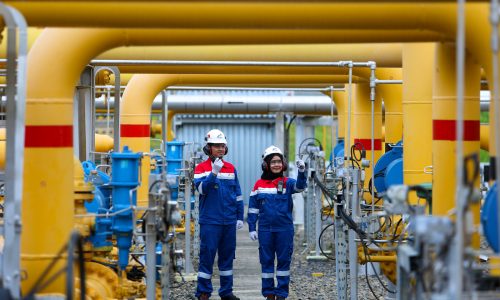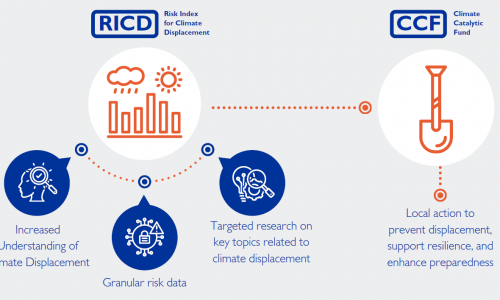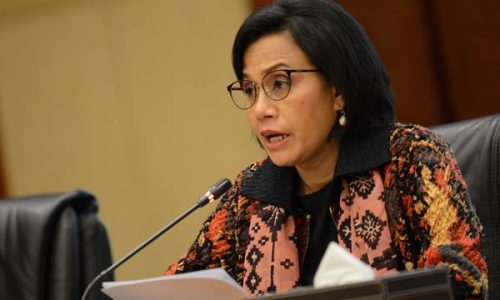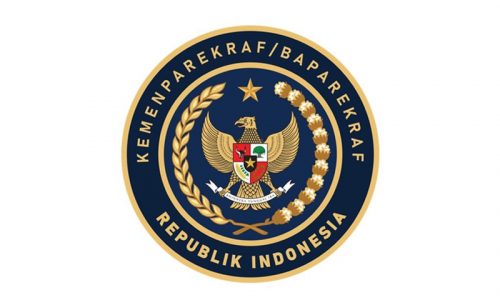The government is optimistic that the eight-percent economic growth target set by President-elect Prabowo Subianto is achievable in view of the scenario of the National Long-Term Development Plan (RJPN) Golden Indonesia 2045.
Deputy for Economics at the Ministry of National Development Planning/National Development Planning Board (Bappenas), Amalia Adininggar Widyasanti, revealed that the next government will accelerate economic growth by 8-8.3 percent in the third year and 7.8 percent in the fourth year so that the average is 7.7 percent over five years.
The target will be carried out through short-term and long-term plans.
“In the short term, the Free Nutritious Meal program is expected to boost economic growth because it absorbs local products, thus triggering aggregate demand,” Amalia said in a seminar themed The Urgency of Industriliation to Achieve 8 percent Economic Growth in Jakarta on Wednesday, October 10, 2024.
The Ministry of National Development Planning/Bappenas will encourage potential sectors that trigger productivity increases to create multiple effects, one of which is industrialization. Going forward, industrial development will increasingly focus on the downstreaming of priority industries such as resource industries (agribusiness, mining, and marine resources), basic industries, labor-intensive industries, sustainable consumer goods industries, research and innovation-based industries, medium-high-tech industries, and creative industries.
“We want the industry to be the anchor and backbone of economic growth to increase productivity and create quality jobs,” she said.
Chairman of the Indonesian Employers Association (Apindo), I Made Dana Tangkas, responded that the government needs to pay attention to five industries, namely manufacturing, trade, agriculture, mining and construction. According to him, business actors can implement key strategies to encourage industrialization.
First, collaboration with the government in utilizing incentives and infrastructure development. Second, diversify the supply chain to reduce dependence on one source. Third, improving the competence of human resources and technology to increase productivity and industrial competitiveness. Fourth, commitment to sustainability is key to improving competitiveness and promoting inclusive and sustainable economic growth.
Founder and senior economist of the Center of Reform on Economics (CORE) Indonesia, Hendri Saparini, argues that economic growth of 5 percent is not enough to create jobs and large added value.
“All countries that enter developed countries have an economic leap. There is a leap in per capita income. While Indonesia is very minimal in economic growth,” she said.
She added that the next government can take three approaches to achieve higher and higher quality economic growth in order to get out of the middle income trap. First, the implementation of the Pancasila economic approach.
“The Pancasila economy is a populist economy. This is a message from the founding fathers to carry out economic activities together. That is, there must be economic democracy,” Hendri said.
She cited the government could involve all parties and provide access to be involved in advancing the industry. Thus, no more people are unemployed and cannot get income because they cannot work. “Actually, everyone can work, but the new government needs to make economic policies so that people can do something,” she said.
Second, revitalize the industry. Hendri said that industrial revitalization is the key for the Indonesian economy to jump high. This industrial revitalization can be done by building basic industries and mobilizing all sectors in all regions. According to him, the manufacturing industry can be an anchor to build backward and forward linkages with supporting industries.
Third, Hendri proposed that the government needs to carry out industrial strategies and policies that are more sophisticated and innovative in the midst of global changes. According to him, the government should not only create security for consumers but also for the market.
Hendri cited examples such as free trade agreements and global economic cooperation. According to her, free trade agreements and global economic cooperation should be carried out more measuredly based on the development of national industries, both upstream-downstream and large and small. “We need comprehensive and inclusive policies,” she said.









